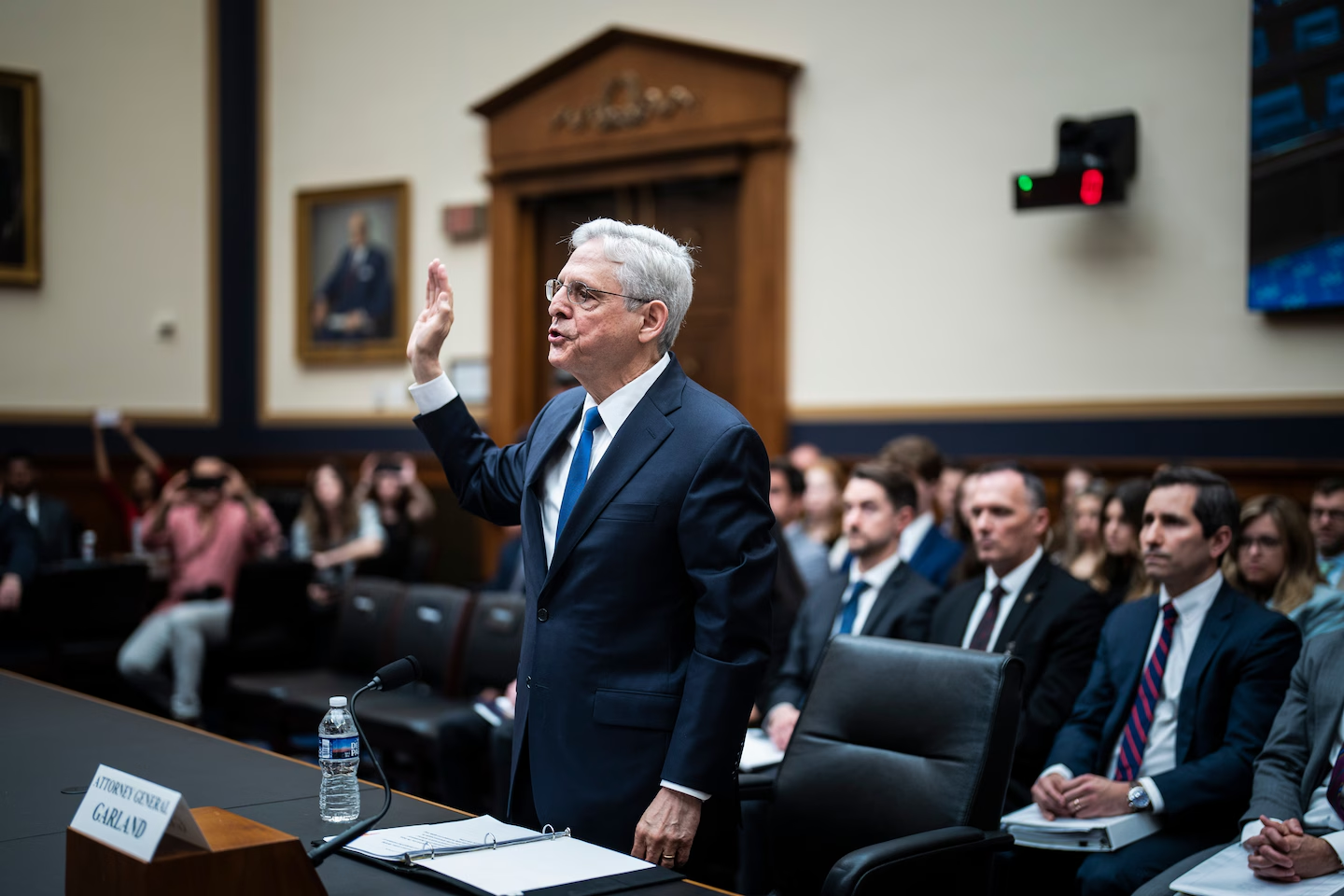
The Republican-controlled House voted Wednesday to hold Attorney General Merrick Garland in contempt of Congress. This vote represents a politically charged confrontation against the Biden administration and follows the Justice Department’s recent conviction of President Biden’s son, Hunter Biden, on felony gun charges.
A Historic and Symbolic Vote
The vote passed with a tally of 216-207, marking the third time in twelve years that a sitting attorney general has been found in contempt by the House. This trend highlights the increasing partisanship in Washington, particularly targeting the nation’s top law enforcement officials. Despite the vote, it is largely symbolic, urging federal prosecutors to investigate and file criminal charges against Merrick Garland — an outcome considered highly unlikely.
Merrick Garland Response

Attorney General Merrick Garland expressed his disappointment in a written statement following the vote. He criticized the House for transforming a serious congressional authority into a partisan tool, stating that the action disregards the constitutional separation of powers and the Justice Department’s need to protect its investigations. Garland pledged to continue defending the Department of Justice and its mission to uphold democracy.
Context of the Vote
Until 2012, no sitting member of the president’s Cabinet had faced such a sanction. However, this practice has become more common in recent years, predominantly affecting attorneys general involved in politically sensitive cases. Republicans accused Garland of contempt for not providing audiotapes of an interview with President Biden conducted by special counsel Robert K. Hur. While the Justice Department provided a transcript of the interview, it withheld the audiotapes, citing executive privilege and the potential negative precedent it could set for future high-profile cases.
House Leadership and Party Responses
House Speaker Mike Johnson (R-La.) emphasized the importance of the contempt vote for ensuring transparency and accountability within the special counsel’s office. He argued that Congress, not the executive branch, should determine the materials needed for its investigations. However, Rep. Dave Joyce (Ohio) was the only Republican to vote against the measure, stating that he could not support a resolution that would further politicize the judicial system.
Investigations and Partisan Conflicts
The interview with President Biden was part of an investigation into classified documents found at his home and former office space. Special counsel Robert Hur concluded there was insufficient evidence to file criminal charges. Republicans contend that Merrick Garland Justice Department has not been aggressive enough in investigating President Biden and his family. Notably, the day before the contempt vote, Hunter Biden was convicted on three felony counts for lying on a gun form and illegally possessing a gun in 2018.
Implications and Legal Precedents
Historically, disputes about executive privilege are resolved through federal court litigation. Rep. Jerry Nadler (D-N.Y.) criticized the vote as a political attack on justice administration. He argued that Republicans are pursuing conspiracy theories without delivering substantial results to the American people. Government lawyers have consistently maintained that invoking executive privilege should not lead to contempt of Congress charges.
Broader Republican Actions

The contempt vote against Merrick Garland is part of a broader pattern of actions by congressional Republicans against senior Biden administration officials. Earlier this year, Homeland Security Secretary Alejandro Mayorkas was impeached by the House by a narrow margin. Additionally, House Republicans have initiated an impeachment inquiry into President Biden, although support for a vote on removal has not been secured.
Conclusion
The House Oversight and Judiciary committees approved a report recommending Garland be held in contempt for not turning over the demanded audio recordings. Judiciary Committee Chairman Jim Jordan (R-Ohio) stated that Republicans are entitled to all evidence, asserting that the audio recording was crucial. He anticipated that the issue would likely end up in court, where Republicans believe they have a strong case.
This development underscores the deepening political divide and the contentious nature of contemporary congressional-executive relations.
Garland criticized the move as partisan and defended the Justice Department’s actions. This symbolic vote, tied to withheld audiotapes of President Biden, follows the Justice Department’s conviction of Hunter Biden. The event marks the third contempt vote against a sitting attorney general in twelve years, reflecting escalating political conflicts in Washington.










